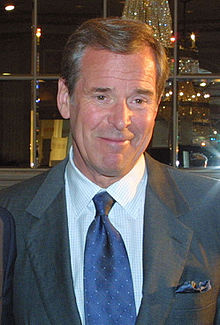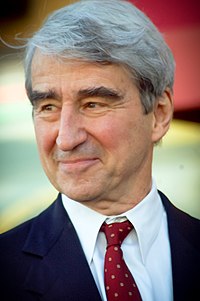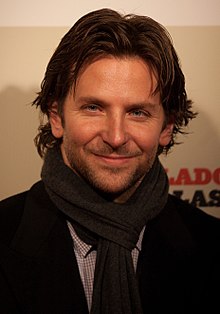The Television Portal

Television (TV) is a telecommunication medium for transmitting moving images and sound. Additionally, the term can refer to a physical television set, rather than the medium of transmission. Television is a mass medium for advertising, entertainment, news, and sports. The medium is capable of more than "radio broadcasting", which refers to an audio signal sent to radio receivers.
Television became available in crude experimental forms in the 1920s, but only after several years of further development was the new technology marketed to consumers. After World War II, an improved form of black-and-white television broadcasting became popular in the United Kingdom and the United States, and television sets became commonplace in homes, businesses, and institutions. During the 1950s, television was the primary medium for influencing public opinion. In the mid-1960s, color broadcasting was introduced in the U.S. and most other developed countries.
In 2013, 79% of the world's households owned a television set. The replacement of earlier cathode-ray tube (CRT) screen displays with compact, energy-efficient, flat-panel alternative technologies such as LCDs (both fluorescent-backlit and LED), OLED displays, and plasma displays was a hardware revolution that began with computer monitors in the late 1990s. Most television sets sold in the 2000s were flat-panel, mainly LEDs. Major manufacturers announced the discontinuation of CRT, Digital Light Processing (DLP), plasma, and even fluorescent-backlit LCDs by the mid-2010s. LEDs are being gradually replaced by OLEDs. Also, major manufacturers have started increasingly producing smart TVs in the mid-2010s. Smart TVs with integrated Internet and Web 2.0 functions became the dominant form of television by the late 2010s. (Full article...)
Selected article -
Selected image -

Early television model, from 1936, produced by Telefunken, Germany
Did you know (auto-generated) -

- ... that Angeline Quinto has recorded songs for at least 35 films and television soundtracks in the Philippines?
- ... that after being wiped by the BBC, all four episodes of the Doctor Who serial The Time Meddler were discovered in Nigeria in 1984?
- ... that Ice King, the antagonist of television series Adventure Time, was at first received negatively by critics but later praised for representing mental health issues such as Alzheimer's disease?
- ... that Ukrainian actress Oksana Shvets, who was killed in the 2022 invasion of Ukraine, starred in the 2013 joint Ukrainian–Russian television family saga House with Lilies alongside Russian actors?
- ... that South Carolina's first television station, WCOS-TV, "could not stand the economic gaff" and folded less than three years after starting up?
- ... that the replacement of arts listings television show 01-for London was described as "like having to swap a bright yellow curvy Japanese sports car for a dumpy little khaki-coloured old Ford Fiesta"?
Selected quote -
More did you know
- ...that the title of Dan Castellaneta's album of comedy sketches I Am Not Homer is a parody of Leonard Nimoy's first autobiography I Am Not Spock?
- ...that one of the television advertisements from the Good things come to those who wait Guinness advertising campaign was voted the "Best ad of all time" by the British public?
- ...that Dyesebel, a popular mermaid character in Filipino comic books, cinema and television, was based on Philippine folklore?
- ...that Melbourne rock band The Strangers appeared on weekly television for nine years straight?
- ...that the Zambian district of Chiengi has no television or telephone service?
Selected biography -
Peter Charles Archibald Ewart Jennings CM (July 29, 1938 – August 7, 2005) was a Canadian-American television journalist, best known for serving as the sole anchor of ABC World News Tonight from 1983 until his death from lung cancer in 2005. Despite dropping out of high school, Jennings transformed himself into one of American television's most prominent journalists.
Jennings started his career early, hosting a Canadian radio show at age 9. He began his professional career with CJOH-TV in Ottawa during its early years, anchoring the local newscasts and hosting the teen dance show Saturday Date on Saturdays. In 1965, ABC News tapped him to anchor its flagship evening news program. Critics and others in the television news business attacked his inexperience, making his job difficult. He became a foreign correspondent in 1968, reporting from the Middle East. (Full article...)General images
News
- December 28: US professional wrestler Jon Huber dies aged 41
- September 2: Tributes paid to recently deceased US actor Chadwick Boseman
- May 24: Japanese professional wrestler and Netflix star Hana Kimura dies aged 22
- January 16: BBC newsreader Alagiah to undergo treatment for bowel cancer
- Upcoming events
Featured content
Main topics
History of television: Early television stations • Geographical usage of television • Golden Age of Television • List of experimental television stations • List of years in television • Mechanical television • Social aspects of television • Television systems before 1940 • Timeline of the introduction of television in countries • Timeline of the introduction of color television in countries
Inventors and pioneers: John Logie Baird • Alan Blumlein • Walter Bruch • Alan Archibald Campbell-Swinton • Allen B. DuMont • Philo Taylor Farnsworth • Charles Francis Jenkins • Boris Grabovsky • Paul Gottlieb Nipkow • Constantin Perskyi • Boris Rosing • David Sarnoff • Kálmán Tihanyi • Vladimir Zworykin
Technology: Comparison of display technology • Digital television • Liquid crystal display television • Large-screen television technology • Technology of television
Terms: Broadcast television systems • Composite monitor • HDTV • Liquid crystal display television • PAL • Picture-in-picture • Pay-per-view • Plasma display • NICAM • NTSC • SECAM
Categories
WikiProjects

|
You are invited to participate in WikiProject Television, a WikiProject dedicated to developing and improving articles about Television. |
- Main projects
- Sub-projects
Television Stations • American animation • American television • Australian television • British TV • BBC • Canadian TV shows • Television Game Shows • ITC Entertainment Productions • Digimon • Buffyverse • Doctor Who • Degrassi • EastEnders • Episode coverage • Firefly • Futurama • Grey's Anatomy • Indian television • Lost • Nickelodeon • The O.C. • Professional Wrestling • Reality TV • The Simpsons • Seinfeld • South Park • Stargate • Star Trek • Star Wars • Soap operas • Avatar: The Last Airbender • House
- Related projects
Animation • Anime and manga • Comedy • Comics • Fictional characters • Film • Media franchises
What are WikiProjects?
Things you can do

- Place the ((WikiProject Television)) project banner on the talk pages of all articles within the scope of the project.
- Write: Possible Possum
- Cleanup: color television, Alien Nation: Body and Soul, The Sopranos, Alien Nation: Dark Horizon, Alien Nation: The Enemy Within, Alien Nation: Millennium, Aang
- Expand: Timeline of the introduction of color television in countries
- Stubs: Flow (television), Just for Kicks (TV series), Play of the Month, Nova (Dutch TV series), More stubs...
Subportals
Related portals
Associated Wikimedia
The following Wikimedia Foundation sister projects provide more on this subject:
-
Commons
Free media repository -
Wikibooks
Free textbooks and manuals -
Wikidata
Free knowledge base -
Wikinews
Free-content news -
Wikiquote
Collection of quotations -
Wikisource
Free-content library -
Wikiversity
Free learning tools -
Wiktionary
Dictionary and thesaurus





























































